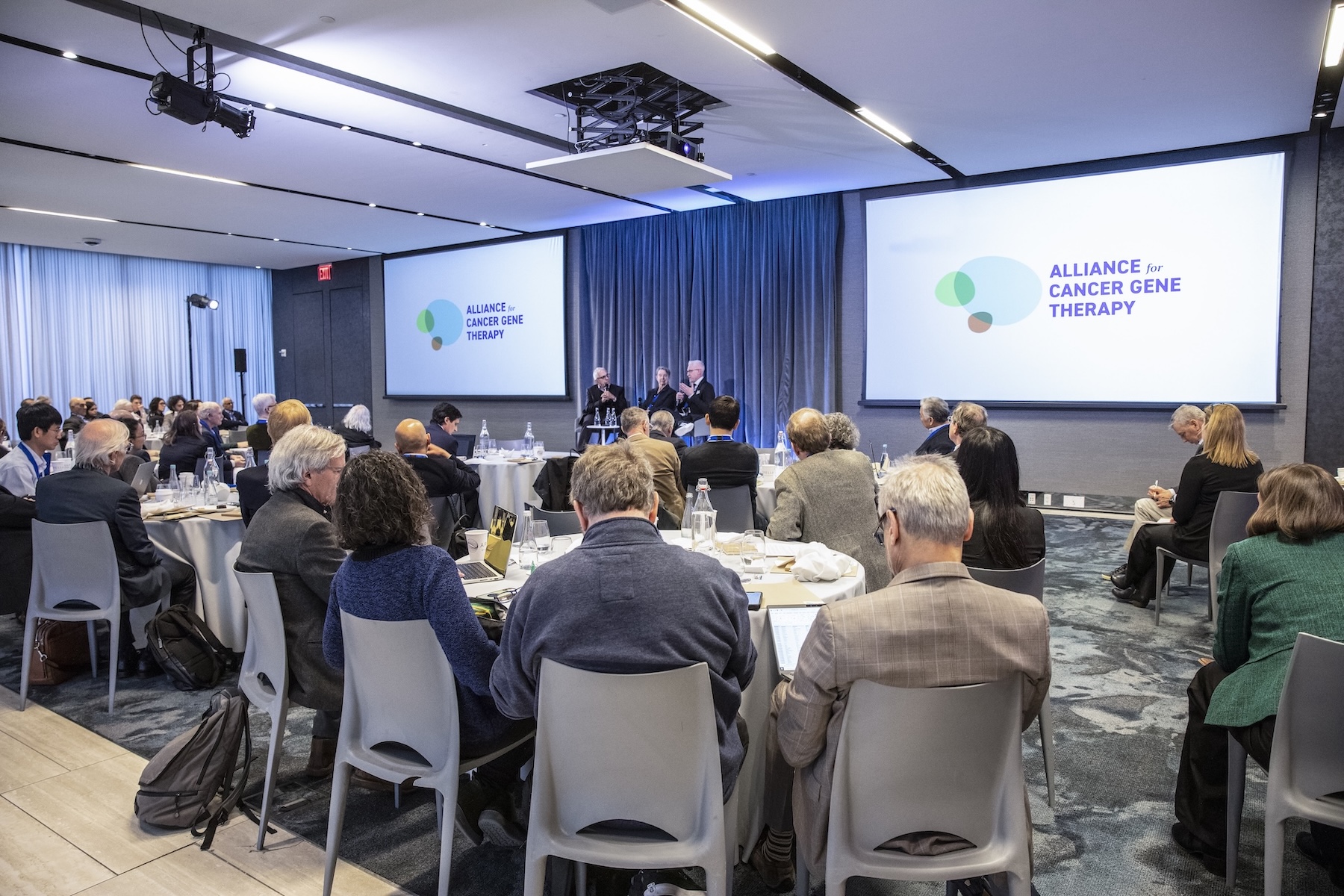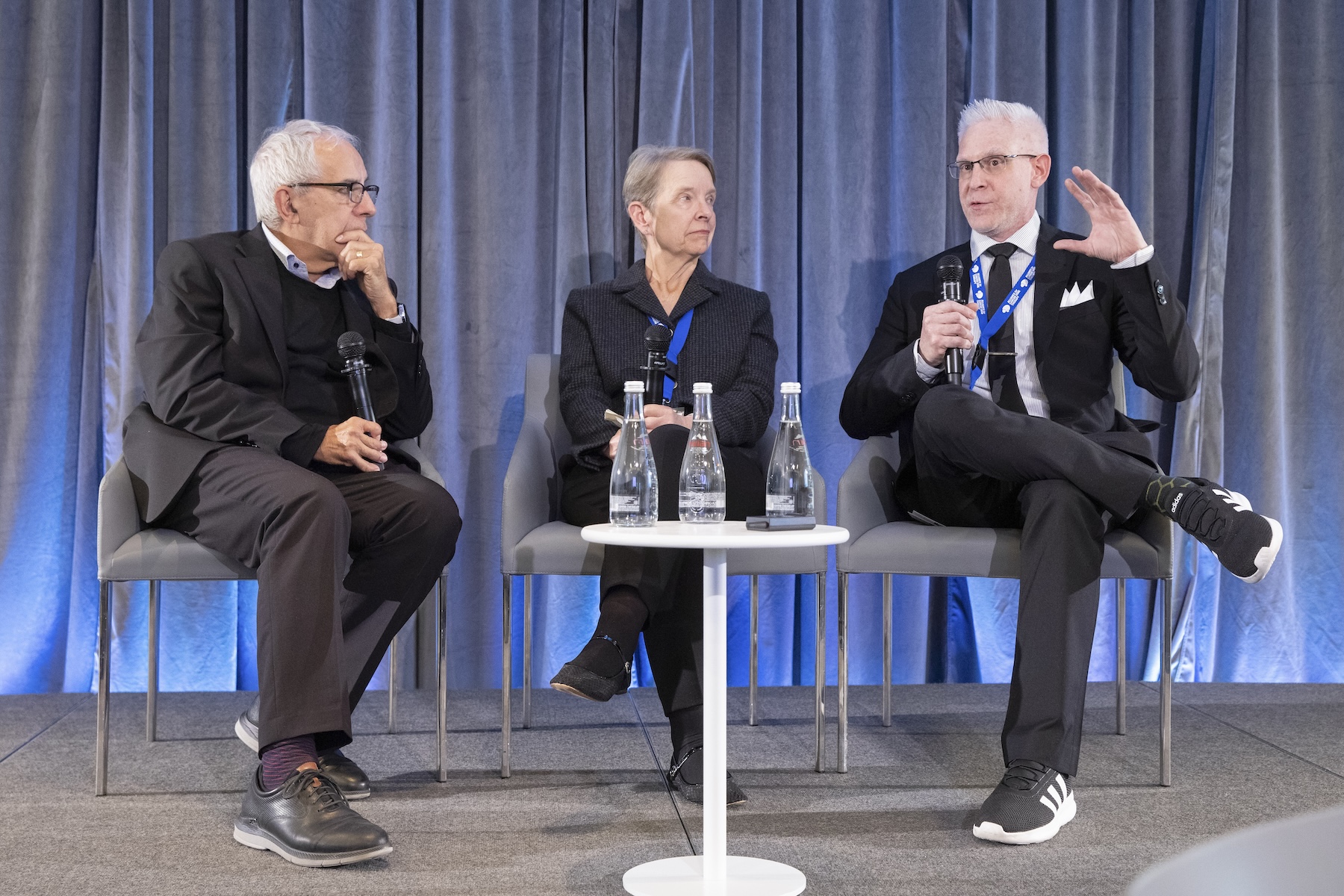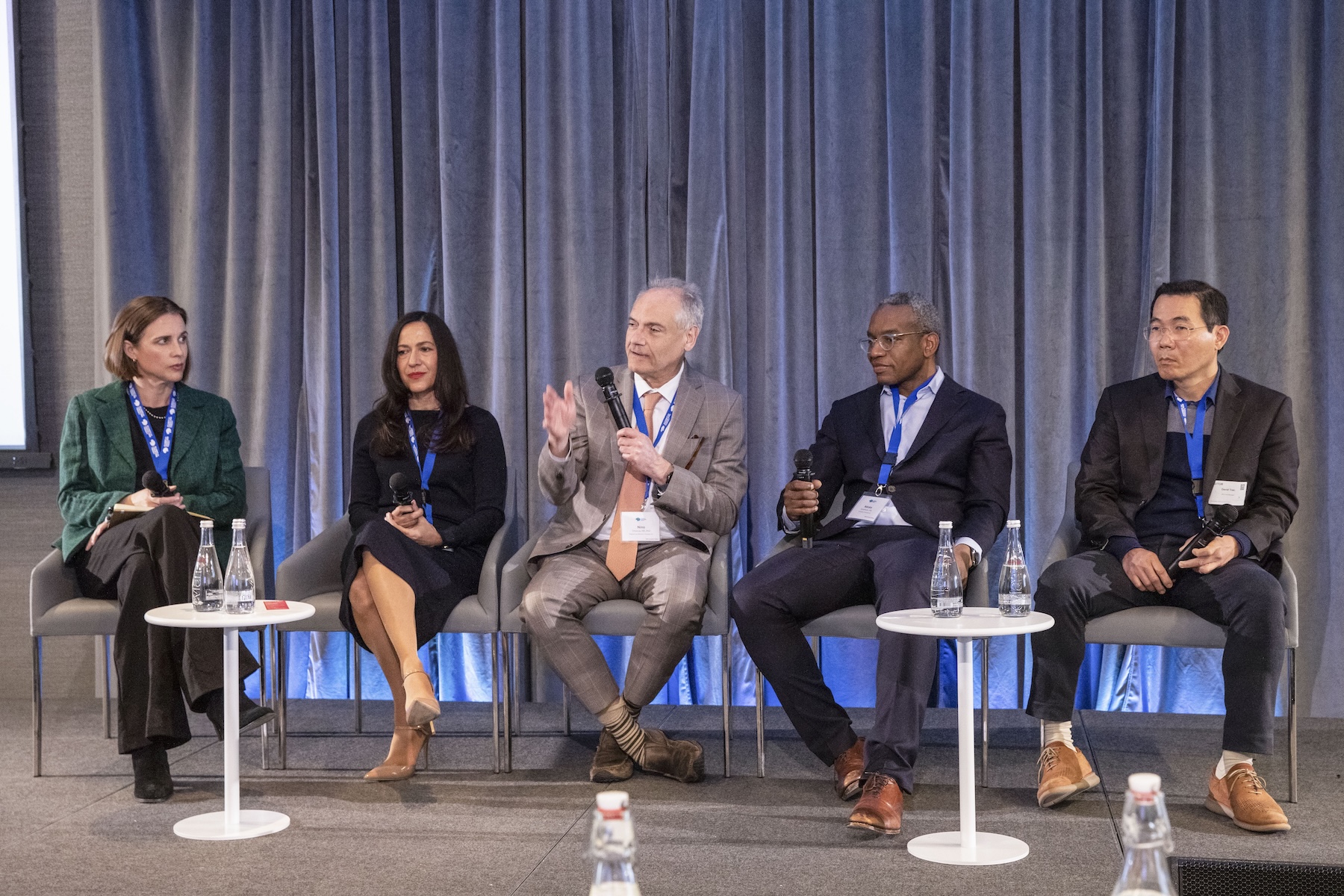
On March 19-20, Alliance for Cancer Gene Therapy (ACGT) held its annual scientific summit – ACGT Summit 2025 – an invitation-only gathering bringing together top scientists in cancer cell and gene therapy. ACGT Research Fellows, ACGT Scientific Advisory Council members, members of the ACGT Board of Directors, biotech and pharma experts, and other industry thought leaders collaborated to share ideas, updates and discuss the present and future of cell and gene therapy for cancer.
Over the course of two days at the Alexandria Center for Life Science in New York City, scientists and researchers at the cutting edge of cancer cell and gene research highlighted several specific areas of heightened interest, with presentations and panel discussions diving into innovations and challenges in treating brain, gynecologic and pancreatic cancer among others, as well as illuminating conversations on the past year’s major patient breakthroughs and how to make them accessible to the wider public.
The attendees praised Summit 2025 for providing a setting where some of the brightest luminaries and trailblazers in cell and gene therapy for cancer could meet to exchange ideas, brainstorm future directions, and work to advance the current state of the art.
“In cell and gene therapy I think the sky is the limit, and from my point of view there really is no gathering apart from this one that is so devoted to this specific area,” said ACGT Scientific Advisory Council member Ira Mellman, PhD (Medici Therapeutics). “I think to have an organization [like ACGT] that both supports this work and provides a forum such as this for researchers to be able to get together and discuss cell and gene therapy for cancer in great detail is incredibly valuable.”
For the attendees of Summit 2025, the meeting was more than just an opportunity to network with peers. It was a vital opportunity to get a clear look at the future of cell and gene therapy and capture the imagination for what can be next in cancer treatment.
“It’s about hearing where people are in the field now and realizing how quickly it’s moving, and in how many different areas it’s expanding,” said Philip Greenberg, MD, PhD (Fred Hutchinson Cancer Center). It’s a very exciting field right now, and our capacity to do things has changed so much that the opportunities are enormous.”
Cancer advocates share their cell and gene therapy stories.

Midway through the summit’s first day, a pair of cancer survivors and patient advocates – Chris White and Laurie Adami – shared the stories of how CAR T-cell therapy and TIL therapy, respectively, saved their lives, in a keynote presentation moderated by cancer advocate and policy expert Gregory C. Simon, himself a cancer survivor, thanks to immunotherapy.
Adami spoke about how her dogged determination to seek out clinical trials – inspired by the story of Emily Whitehead, the first child to receive CAR T-cell therapy – got her accepted into a trial that cured her follicular lymphoma.
Meanwhile, White, who admitted that he had little knowledge of the clinical trial system before his battle with advanced metastatic anorectal mucosal melanoma went through several unsuccessful rounds of treatment, talked about the experimental TIL therapy that brought him back from the brink of death, keeping him in complete remission for the last five years – and the challenges many cancer patients face in discovering all the options available to them.
“I only learned about my treatment by default,” White said. “But if I had the option to do one treatment one time and have all these other things as a backup, I would have done that first. My whole perception of clinical trials and FDA approved treatments was all backwards, and it shouldn’t have to be like that.”
Both White and Adami saw their presence at ACGT Summit 2025, and their overall work as patient advocates, as a twofold opportunity. First, to give hope to other cancer patients and further educate them on the curative potential of cell and gene therapy. Secondly, to provide a human face to the researchers who are making these therapies possible and to provide them with affirmation that their work is making a concrete impact on people’s lives.
“Imagine if you’re working on an engine but you never see it run,” White said. “That’s exactly what it’s like at events like this when you’re talking to people who create curative treatments. There are proof of concepts out there, they’re just not empowered to help inspire. Patients want to know these treatments exist and the industry want to get their products through trials and get them approved, so it’s very empowering when you meet these folks.”
Keynote panel looks at new directions for cancer cell and gene therapy.
The first day of Summit 2025 was headlined by a keynote panel presenting the pharma perspective on the present and future of cancer immunotherapy, featuring ACGT Scientific Advisory Council member George Yancopoulos, MD, PhD (Regeneron), Ruth Salmon, PhD (Bristol Myers Squibb), Emily Bosco, PhD (AstraZeneca) and Ira Mellman, PhD (Medici Therapeutics).
Among the main topics of the panel: the integration of new technology and its potential use in cancer research. Artificial intelligence has been the subject of a tremendous amount of inquiry over the past year, especially concerning its place within the field of scientific discovery. How then, could artificial intelligence be used to effectively and ethically push forward cell and gene therapy research?
The experts agreed that in its current state, artificial intelligence is unlikely to soon, if ever, provide sui generisinsights. But given its demonstrated use in analyzing massive datasets and identifying patterns, it could help doctors figure out where to go next when treating a cancer patient.
“A tumor is adaptive, and if we’re trying to treat it with a continuous array, tumors become resistant,” Salmon said. “If it was possible to arm the immune system in a way that it can always detect when an incipient tumor is present, you’d be in a one-and-done situation. I believe that is possible.”
Experts ponder future of cell and gene therapy for brain cancer.

Summit 2025 also hosted an insightful panel on the future of cell and gene therapy for brain cancer, specifically glioblastoma, featuring ACGT Scientific Advisory Council members Nduka Amankulor, MD (University of Pennsylvania) and E. Antonio Chiocca, MD, PhD (Brigham and Women’s Hospital), Sheila Singh, MD, PhD (McMaster University) and David Tran, MD, PhD (Stanford University).
A glioblastoma diagnosis is still to this day regarded as akin to a death sentence, with a five-year survival rate of only 5%. However, 2024 was reported as a “banner year” for brain cancer research, with three first-in-human CAR T cell therapy trials that produced responses that, while only transient, were still considered remarkable.
Cell and gene therapy research is still far from providing anything lasting against glioblastoma, but the groundwork being laid by ACGT Research Fellows over the last year has shown something greater is possible. And according to the experts at ACGT Summit 2025, their progress illustrates the necessity of a wider shift in how brain cancer research is approached.
“We don’t know which therapy is going to work for which patients,” Singh said. “The problem is that we’re playing with clinical trials like it’s a guessing game. We’re going in blind. We’re working on the same 10 targets that we’ve been working on for 20 years. We need a polytherapeutic approach that is rational and data-driven.”
Scientists present major patient breakthroughs of 2024.
ACGT Summit 2025 also saw presentations of 2024 FDA-approved cell and gene therapies. Joanna Brewer, PhD (Adaptimmune) touted the success of Tecelra® (afamitresgene-autoleucel), the first TCR-T therapy ever approved by the FDA, and the first new treatment for metastatic or unresectable synovial sarcoma in a decade – targeting a highly aggressive cancer that previously had poor outcomes and a high unmet need.
In addition, Raj Puri, MD, PhD(Iovance) presented the development and approval story of AmtgaviTM(lifileucel), the first TIL therapy to receive FDA approval for advanced melanoma, and the first and only one-time individualized and unmodified T cell therapy approved for a solid tumor cancer.
In all, 90 researchers and leaders in the cancer cell and gene therapy field registered for Summit 2025 representing 51 unique institutions and companies. ACGT is already hard at work planning Summit 2026 for next March.



